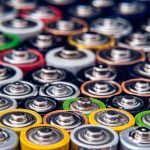Tag Archives: Materials Science and Engineering
New green technology for producing hydrogen

Professor Avner Rothschild’s research group at the Technion – Israel Institute of Technology developed a new green technology for producing hydrogen Professor Avner Rothschild From right to left: Dr. Anna Breytus, Matan Sananis, Dr. Yelena Davidova and Ilya Slobodkin A group of researchers from the Technion Faculty of Materials Science and Engineering is presenting a… Read More
Spreading Light Through Teaching

More than 250 volunteers from the Technion mobilized to help teach students who were evacuated from their homes About a week after the outbreak of the war, in mid-October, Prof. Yohai Carmel from the Faculty of Civil and Environmental Engineering came across a volunteer academy project . This new and exciting initiative is designed to harness members of… Read More
Technion Inaugurates Sagol Center for Composite Materials

The Technion inaugurated the Sagol Center for Composite Materials. The ceremony took place in the Faculty of Materials Science and Engineering during the Technion’s Board of Governors meeting, with Tova, Sami and Itzhak Sagol and their family, and the Technion management all on hand. The plaque honoring the Sagol family was unveiled at the closing… Read More
Prof. Avner Rothschild receives ERC Advanced Grant

Professor Avner Rothschild from the faculty of Material Science and Engineering at the Technion – Israel Institute of Technology was awarded the European Research Council (ERC) Advanced Grant, of about €3 million. The ERC Advanced Grant is given to the best proposals by researchers who have a track-record of significant research achievements in the last… Read More
Electricity from Air

Scientists at Forschungszentrum Jülich have developed and successfully lab-tested a novel titanium-air battery in cooperation with researchers at the Technion - Israel Institute of Technology in Haifa. This is the first time that experimental results of such a battery have been published, in which titanium is used as an active material. The metal is of… Read More
A Bridge between Biology & Electronics

Researchers at the Technion - Israel Institute of Technology have developed devices that connect electronics with biology and are suitable for monitoring various ions in a solution, sensing in biological systems, and other applications. The research was headed by doctoral student Eyal Stein and Professor Gitti Frey from the Technion’s Faculty of Materials Science and… Read More
Academic-Industrial Connections

An important step has been made in the collaboration between Intel and the Faculty of Materials Science and Engineering at the Technion-Israel Institute of Technology in Haifa. The huge Intel Corporation – the American multinational corporation and technology company headquartered in Santa Clara, California and the world's largest semiconductor chip manufacturer – has donated to… Read More
Learning from the Lotus Flower

According to the Food and Agriculture Organization (FAO), fungal diseases are responsible for destroying a third of all food crops annually, causing immense economical loss and adding to global poverty. For example, powdery mildew is a serious fungal disease, which is easily noticeable by patches of white powder found on leaves and attacks a wide… Read More
Inspired by Nature: Changing Magnetism

Israeli researchers have developed a new technique for controlling the magnetic properties of materials. The method draws inspiration from mineral growth processes by organisms in nature. The research was led and initiated by Prof. Boaz Pokroy and doctoral student Arad Lang from the Department of Materials Science and Engineering at the Technion – Israel Institute… Read More
Sustainable, Rechargeable Silicon Batteries

A team of researchers from the Technion – Israel Institute of Technology has developed a proof-of-concept for a novel rechargeable silicon (Si) battery, as well as its design and architecture that enables Si to be reversibly discharged and charged. Led by Professor Yair Ein-Eli of the Faculty of Materials Science and Engineering, the team proved via… Read More


